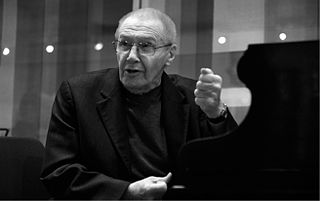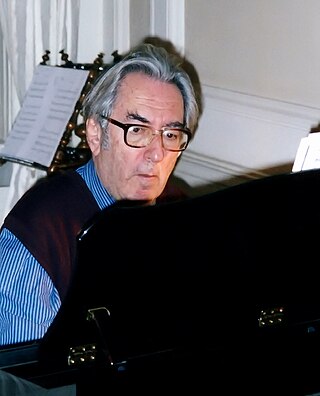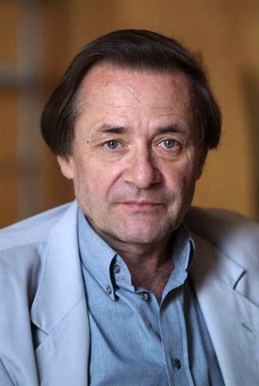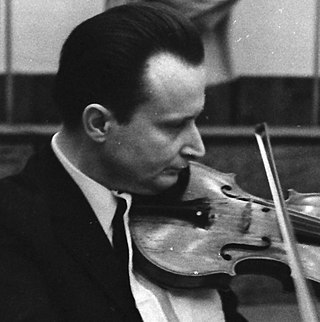
György Kurtág is a Hungarian classical composer and pianist. He was an academic teacher of piano at the Franz Liszt Academy of Music from 1967, later also of chamber music, and taught until 1993.

Zoltán Kocsis was a Hungarian pianist, conductor and composer.

Ernst von Dohnányi was a Hungarian composer, pianist and conductor. He used a German form of his name on most published compositions.

Leó Weiner was one of the leading Hungarian music educators of the first half of the twentieth century, and a composer.

Zoltán Székely was a violinist and composer.

János Sebestyén was a Hungarian organist, harpsichordist, pianist and journalist.

András Ligeti was a Hungarian classical violinist and conductor who worked internationally. He was chief conductor of the Hungarian State Opera House until 1985, and chief conductor to the Budapest Symphony Orchestra from 1989 to 1993. He recorded with a focus on Hungarian music and contemporary music.
Károly Schranz is a Hungarian violinist and founding second violinist of the Takács Quartet. During his forty-three year career with the quartet he received awards from the Hungarian Government of the Knight's Cross and the Commander's Cross of the Order of Merit of the Republic of Hungary. As a member of the Takács he was awarded one Grammy and four nominations, several Gramophone Awards, as well as other awards of excellence.

Dezső Ránki is a Hungarian virtuoso concert pianist with a broad repertoire and a significant discography of solo, duo and concerto works.
Kossuth, Sz. 21, BB. 31, DD. 75a is a symphonic poem composed by Béla Bartók inspired by the Hungarian politician Lajos Kossuth.
The Tátrai Quartet was a Hungarian classical string quartet founded in 1946. For the half-century after World War II it was one of the foremost string quartets in Hungary, specializing in Haydn and Bartók, whose complete quartets it recorded for Hungaroton, Mozart and Beethoven as well, and were also responsible for first performances of works by certain Hungarian composers.
Kristóf Baráti is a Hungarian classical violinist.
Gábor Takács-Nagy, is a Hungarian violinist and conductor. He began violin studies at age 8. He attended the Franz Liszt Academy of Music, where he won the Jenő Hubay prize. His teachers at the Liszt Academy included Ferenc Rados, András Mihály, and György Kurtág.

Csaba Káel is a Hungarian film director and CEO of Müpa Budapest. He was awarded the Kossuth Prize in 2020 and the Kálmán Nádasdy Prize in 2013.
András Keller is a Hungarian violinist and a founder of the Keller Quartet. He also works as a director and conductor of Concerto Budapest.

Péter Komlós was a Hungarian violinist, known particularly as the founder of the Bartók String Quartet.
András Mihály [ˈɒndraːʃ ˈmihaːj] was a Hungarian cellist, composer and academic teacher.

Imre Waldbauer was a Hungarian violinist and music teacher.

Dénes Kovács was a Hungarian classical violinist and academic teacher, described as "pre-eminent among Hungarian violinists". He won the Carl Flesch International Violin Competition in 1955. In his career as a soloist and recording artist, he premiered and recorded the works of 20th-century Hungarian composers, and was also noted for his recordings of Bartók and Beethoven. From 1967 to 1980, he headed the Franz Liszt Academy of Music in Budapest, Hungary's principal music college. He received many national awards including the Kossuth Prize (1963).












